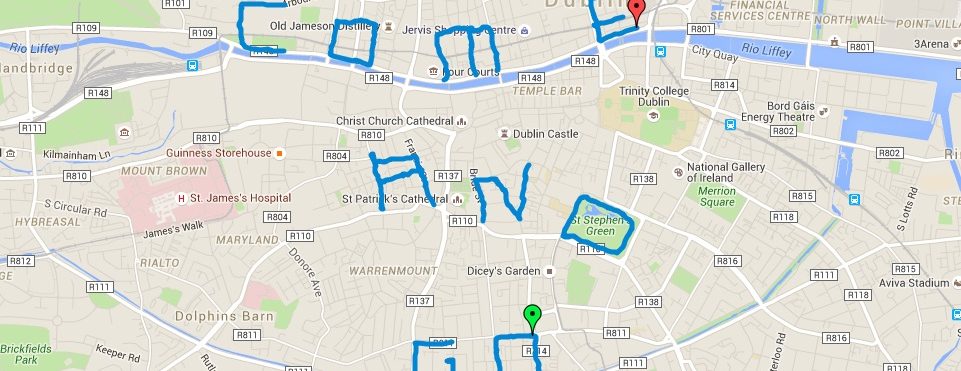Dois trabalhos de Anatole Pierre Fuksas sobre locative media. O primeiro, Embodiment of Stories in Hybrid Environments é um slide show de sua apresentação ontem no congresso em KERG in Tallinna Ülikool, Tallinn, Estonia. O segundo é um trecho do seu blog, “the ecology of the novel – a book in progress” sobre o o autor e novas formas de narrativa utilizando as mídias locativas. Vejam:
“That is, as part of a more general inquiry on the Ecology of the Novel, it will investigate potential literary applications based on Global Positioning System (GPS), Geographic Information System (GIS) or similar geotagging standards.
In a few years narrative artists and storytellers’ communities will be likely writing or taping stories to be broadcasted by locative media mining 2.0 websites for contents delievered by Location-based media on GPS or GIS enabled portable wireless devices. Textual narratives as podcasted stories will invade laptop computers and mobile phones, providing readers and listeners with pertinent references or analogical interferences aimed to enriching natural environments. Presences triggered by the mirror matching of references entailed by symbolically encoded narratives, both in audio and written text formats, will infest urban and rural environments, forests and deserts, islands and hills, mountains and beaches, enhance the sensory experience of perceived landscapes.
So, questions arise. What formats may be forecasted as the standards ones when it will come to the implementation of socially shared narrative art with locative tagging? Will these new narrative standards reshape interactions between subjects and environments? Moreover, while providing a permanently operative level of interaction between narrative contents and natural environments, will geotagged stories play crucial role in the literary system? Will eventually the novel be doomed to marginality or even extinction because of the rise of socially-networked locative narratives? Rather, will the novel outlast this technological revolution too?”
